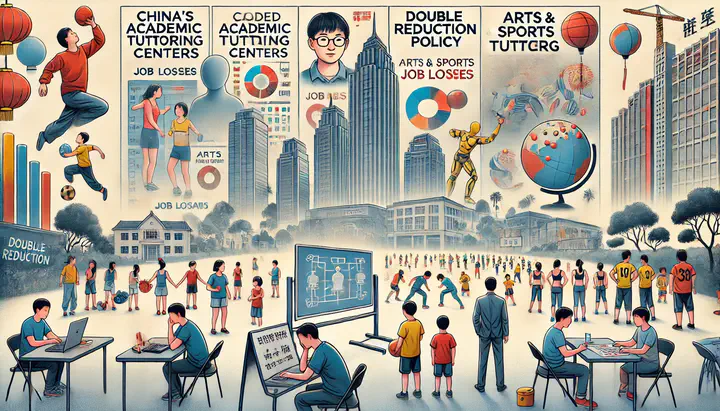Biting the Hand That Teaches: Unraveling the Economic Impact of Banning Private Tutoring in China
 Image credit: Generated by Dall-E using abstract
Image credit: Generated by Dall-E using abstract
Abstract
Shadow education in China is a significant social issue and a leading factor in exacerbating education inequality that fosters over-competition. In July 2021, the Chinese government implemented the Double Reduction Policy, which banned for-profit academic private tutoring. We estimate the economic consequences of this policy on the education industry in China by employing two novel datasets containing online job postings and firm registration information. We find that within four months after the policy implementation, online job postings for tutoring-related firms decreased by 89%, tutoring-related firm entry decreased by 50%, and their exits tripled. Cities with 10,000 (2%) more children lost 50 (3.7%) more education-related job opportunities, experienced 0.3 (5.9%) fewer firm entries, and 0.1 (1.3%) more firm exits per month. Surprisingly, not only academic tutoring firms were impacted, but also untargeted businesses involving in arts and sports tutoring were also heavily struck, although they were encouraged by the policy to promote children’s non-academic ability. This negative spillover can be partly explained by the interconnected ownership structure among academic and non-academic tutoring firms. Back-of-the-envelope calculations show that this policy led to 3 million job losses in four months and at least 11 billion RMB Value Added Tax losses in 18 months nationally.